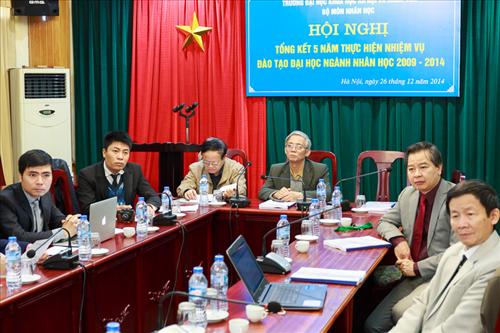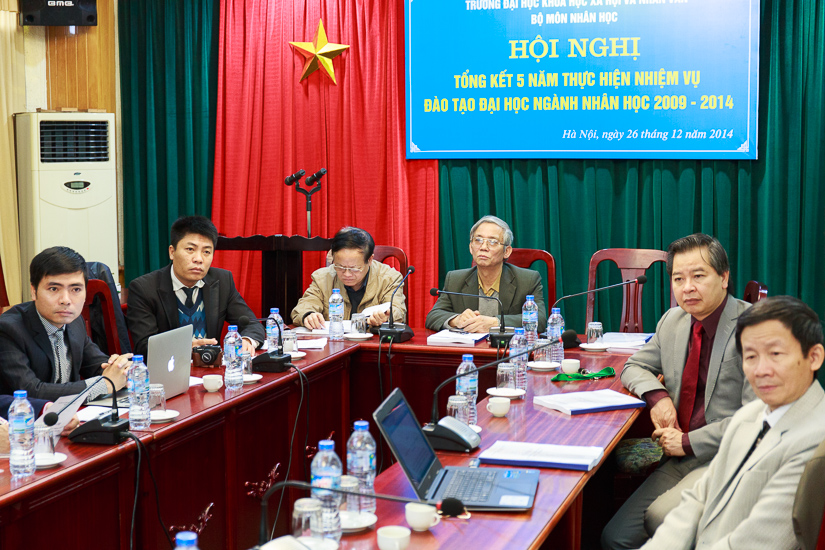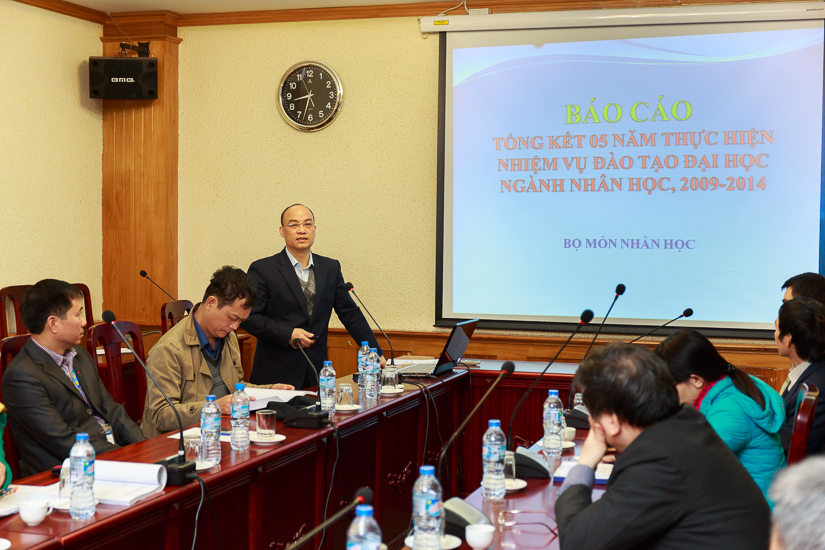

Photo: Jackie Chan
Anthropology Training: Initial Successes
With a history of hundreds of years of research and training at universities around the world, but in Vietnam, Anthropology has only been implemented since 2003 and officially included in the list of training codes of the Ministry of Education and Training since 2009. Anthropology in Vietnam is a development from the major of Ethnology under the major of History to expand the research subjects from ethnic and cultural issues to a broader framework and vision of a science. Anthropology comprehensively studies humans, in diverse areas, from farming communities, rural to urban, connecting biological aspects with culture, economy, society in the present and in the past, with both basic research purposes and practical applications.
Currently, Anthropology is being trained at three institutions: the Department of Anthropology of the University of Social Sciences and Humanities (VNU), the Faculty of Anthropology of the University of Social Sciences and Humanities - VNU-HCM and the Academy of Social Sciences (Vietnam Academy of Social Sciences). Of which, the Department of Anthropology of the University of Social Sciences and Humanities (VNU) is the only unit in Vietnam that is systematically training Anthropology from bachelor to doctoral level. After 5 years of training Anthropology, the Department has enrolled 6 bachelor courses, two master courses, one doctoral course, of which two bachelor courses have had high graduation rates, many of whom have found jobs in different agencies.
Strengthening the promotion of the field of study
The summary report of 5 years of implementing the task of training university students in Anthropology by the Department of Anthropology emphasized that after graduation, bachelors of Anthropology have enough capacity and skills to work in many fields of the State and society, such as education, training, research, management, development, relief, anti-poverty, conservation, museums, arts...
However, in order for Anthropology graduates to have access to more job opportunities, the Department and the School need to continue to promote Anthropology and the professional competencies of Anthropology graduates so that local authorities, people and society in general can better understand Anthropology and the professional competencies of Anthropology graduates.
Actual survey of information on civil servant recruitment website in Vietnam in 2014 (http://tuyencongchuc.vn)choAcross the country, many central agencies have officially announced the recruitment of people with undergraduate and postgraduate degrees in Anthropology, including state agencies such as the Ethnic Committee; universities, for example, Hanoi Medical University; research institutes, such as the Institute of Ethnology, the Institute of Psychology, the Institute of Sociology, the Institute of Human Studies; museums and some publishing houses; and international organizations and non-governmental organizations...
However, many sources of information indicate that at the local level, there are many positions in departments, branches, sectors and lower levels that do not include people with an Anthropology degree in the recruitment list of civil servants and public employees, even though the job positions are described very appropriately with the qualifications, knowledge and skills of people with an Anthropology degree. Specifically, some areas of work that Anthropology graduates can do well but are not yet recruited are: culture, sports, tourism, labor, war invalids and social affairs, ethnicity, religion, etc.

Photo: Jackie Chan
Commenting on this issue, Associate Professor Dr. Pham Quang Minh (Vice Rector of the University of Social Sciences and Humanities) affirmed that Anthropology has a very wide research area in Vietnam. Moreover, Anthropology is an interdisciplinary science, capable of connecting many other fields within and outside the social sciences and humanities, so the prospects and job opportunities are very large. The problem is that in Vietnam, society and students do not seem to have a deep understanding of this field of study, and have not seen what job positions students in this field can take after graduation. Therefore, the Department and the University will have to continue to promote communication activities to attract input, promote output products, so that society can see all the values and meanings of Anthropology and the career opportunities for people with an Anthropology degree.
From another perspective, Associate Professor Dr. Nguyen Van Chinh (Department of Anthropology, University of Social Sciences and Humanities) said that in order to expand the influence of the field of study, it is necessary to promote training linkage and research cooperation between the Department of Anthropology and other units outside the school, especially universities, research institutes, central and local agencies and departments that have human resource needs in the field of Anthropology.
Improve training quality to meet practical requirements
Another important issue is that, in the vision of a quality, prestigious training program that can compete with training programs of countries in the region, the core must be to continuously improve training quality, meet the requirements of social practice and international integration.
Right in the capital city of Hanoi, there are weekly recruitment announcements from many international organizations and non-governmental agencies for many job positions that are suitable for the expertise and skills of Anthropology graduates. However, to have a better chance of accessing these competitive yet promising career opportunities, students need to continue to improve their English skills and gain other necessary experiences.
MSc. Dinh Viet Hai (Deputy Head of Training Department, University of Social Sciences and Humanities) suggested that it is necessary to conduct a thorough survey of students and alumni of Anthropology to clarify: what path led them to Anthropology? How did they learn, change and mature with Anthropology? What do they see as needing innovation in training activities? These will be important bases for continuing to adjust training programs, improve quality, both in terms of expertise and foreign languages, to better meet the needs of social practice.
Author:Thanh Ha
Newer news
Older news